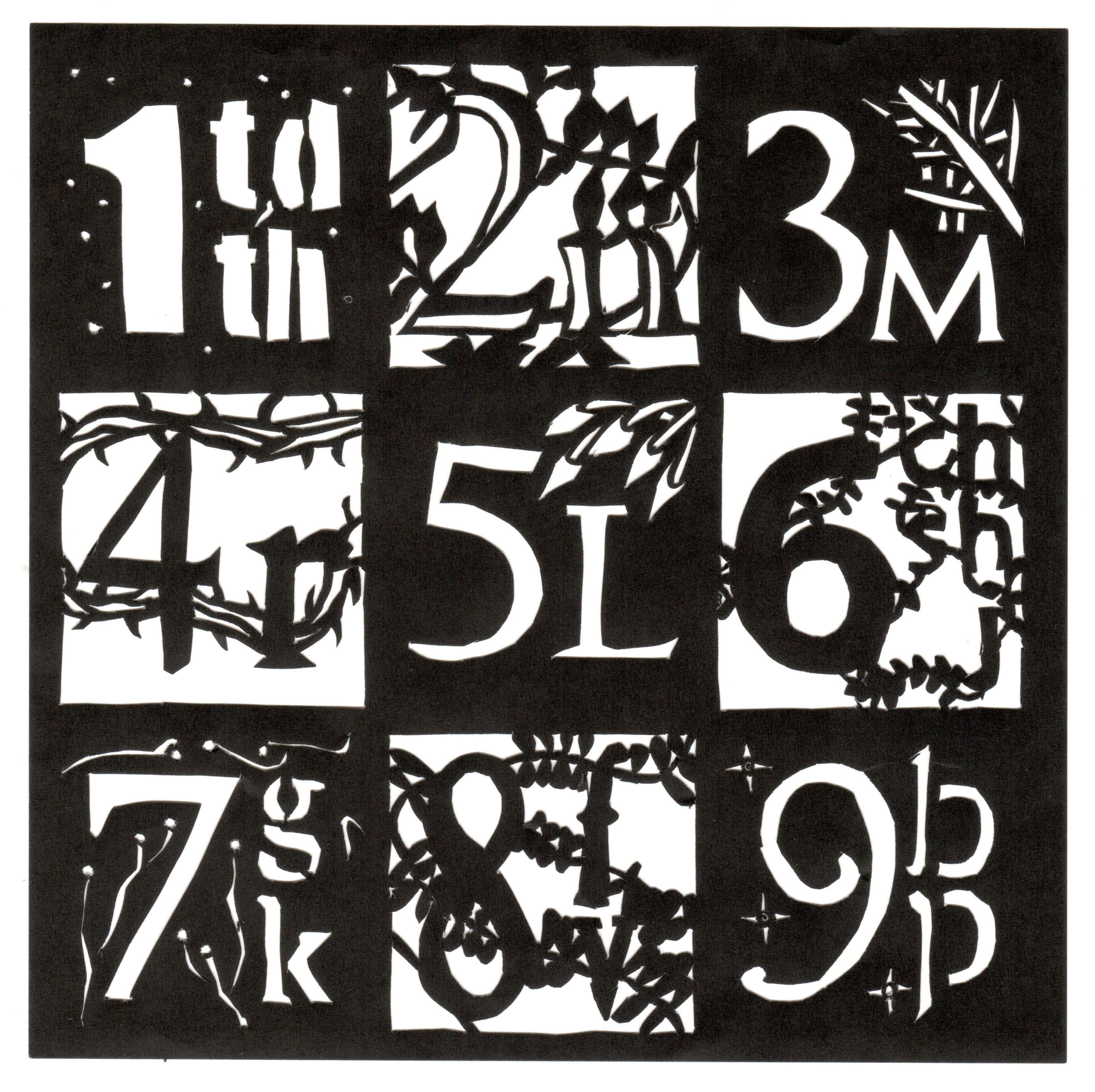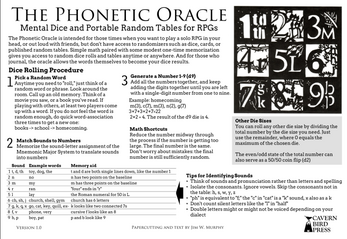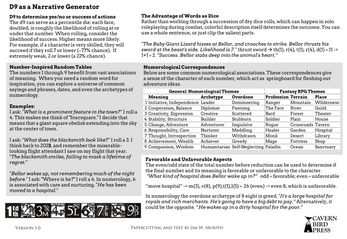The Phonetic Oracle
A downloadable game
Mental Dice and Portable Random Tables for RPGs

The Phonetic Oracle is intended for those times when you want to play a solo RPG in your head, or out loud with friends, but don't have access to randomizers such as dice, cards, or published random tables. Simple math paired with some modest one-time memorization gives you access to random dice rolls and tables anytime or anywhere. And for those who journal, the oracle allows the words themselves to become your dice results.
The Phonetic Oracle generates a d9 roll, but can also be used to generate dice of any size.
Included an actual play example file to give an idea of how The Phonetic Oracle works in practice. This play example uses the Cryptic Gamemaster framework, although downloading the framework is not necessary to understand the playthrough.
| Status | Released |
| Category | Physical game |
| Rating | Rated 5.0 out of 5 stars (1 total ratings) |
| Author | Cavern Bird Press |
| Genre | Role Playing |
| Tags | Dice, diceless, fkr, GM-Less, No AI, One-page, rules-lite, Solo RPG, Tabletop |
| Average session | A few seconds |
| Accessibility | Color-blind friendly |
Download
Click download now to get access to the following files:


Comments
Log in with itch.io to leave a comment.
Is there a reason why those sounds are used for those numbers? (Asking because I'm thinking of an adaptation for languages other than English)
Thanks for asking. They come from the Mnemonic major system,.The letters were chosen because of they resemble the shapes of numbers, or have some other memorable connection. So there is nothing that is specific to English in that sense. Other European languages should be fine.
There would be some difficulty in using it for languages without a lot of consonants (Hawaiian and Polynesian languages). Also Arabic is missing a p and doesn't use g in a the same way as English, but this is okay because you have other b and k sounds to stand in for those. L and R might not be as distinct in Japanese and Korean. In that case, the L/R sound could both be assigned to 4, and other sound like h or y could be assigned to 5.